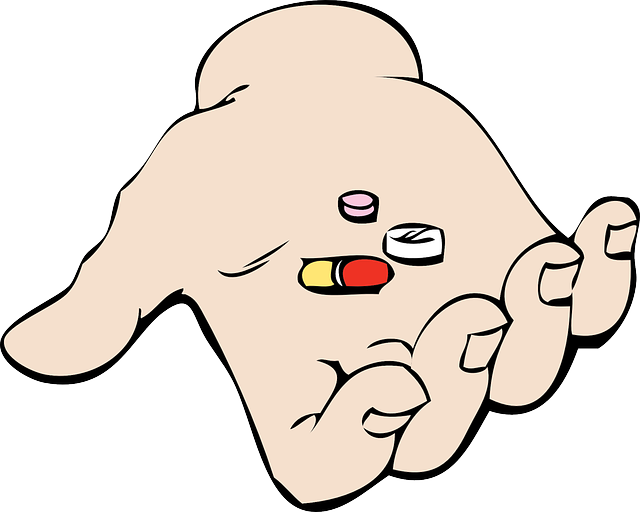Yoga therapy classes blend physical postures, mindfulness principles, breathing techniques, and meditation to achieve deep relaxation and holistic wellbeing. This ancient practice connects physical health with mental clarity, making it an effective stress management tool. Regular sessions improve mental focus, energy levels, and coping mechanisms, integrating into wellness programs focusing on nutrition, exercise, and stress reduction. Online support groups for loved ones of addicts, combined with yoga practices, offer significant mental health benefits, improved sleep habits, and a balanced lifestyle through virtual community platforms.
Yoga therapy classes offer a holistic approach to wellness by merging physical postures with mindfulness techniques, fostering deep relaxation and mental clarity. This ancient practice not only enhances flexibility and strength but also promotes emotional balance and stress reduction. In this article, we explore how understanding yoga therapy can unite physical and mental wellbeing, highlight the role of mindfulness in achieving profound relaxation and recovery, and discuss the growing importance of online support groups for loved ones of addicts who seek compassion and connection from afar.
- Understanding Yoga Therapy: Uniting Physical and Mental Wellbeing
- The Role of Mindfulness in Deep Relaxation and Recovery
- Online Support: Connecting Loved Ones Through Yoga and Compassion
Understanding Yoga Therapy: Uniting Physical and Mental Wellbeing

Yoga therapy classes merge physical postures with mindfulness principles to achieve deep relaxation, fostering a holistic approach to wellbeing that addresses both mind and body. This ancient practice recognizes the profound connection between physical health and mental clarity, making it an invaluable resource for individuals seeking stress management. By incorporating breathing techniques, meditation, and gentle movements, yoga helps reduce anxiety, promote sleep, and enhance overall mental resilience.
Unlike traditional fitness classes focusing solely on physical exertion, yoga therapy prioritizes a slow and mindful approach to movement, allowing participants to connect with their bodies in a deeper way. This practice is beneficial not only for individuals dealing with chronic stress or seeking addiction recovery support (including those who might benefit from online support groups for loved ones of addicts) but also for anyone looking to integrate more balance and harmony into their lives. By participating in yoga therapy, individuals can discover a path towards improved mental clarity, increased energy levels, and better coping mechanisms – all essential components of holistic wellness programs focusing on nutrition, exercise, and stress management for optimal health recovery.
The Role of Mindfulness in Deep Relaxation and Recovery

Mindfulness plays a pivotal role in achieving deep relaxation and recovery, especially within the context of yoga therapy classes. By integrating mindfulness principles with physical postures, practitioners learn to cultivate present-moment awareness, enabling them to release tension and stress accumulated in both mind and body. This practice helps individuals develop a deeper connection between their thoughts, emotions, and physical sensations, fostering an environment conducive to healing.
In today’s fast-paced world, where the demands of daily life can be overwhelming, prioritizing holistic wellness becomes essential. Yoga therapy offers a unique approach that goes beyond mere exercise, focusing on the interconnectedness of nutrition, exercise, and stress management for overall well-being. Moreover, integrating mindfulness practices can significantly enhance sleep habits and provide mental health help, making yoga an effective tool for those seeking balanced living, including loved ones of addicts who often benefit from online support groups.
Online Support: Connecting Loved Ones Through Yoga and Compassion

In today’s digital era, online support groups have become a powerful tool for loved ones of individuals struggling with addiction. These virtual platforms offer a sense of community and understanding, connecting people facing similar challenges. Through shared experiences, members gain valuable insights and emotional support, fostering a supportive environment conducive to healing.
The availability of online support groups provides an additional layer of care, especially for those who may not have access to local support networks. They offer ongoing guidance and encouragement throughout the recovery journey, addressing the unique needs of each individual and their families. This form of assistance is particularly beneficial in navigating the complexities of addiction, promoting compassion, and strengthening relationships affected by substance abuse.
Yoga therapy offers a holistic approach to healing, combining physical postures with mindfulness techniques to promote deep relaxation and overall well-being. By incorporating practices from yoga and mindfulness, individuals can find balance and restore their mental fortitude. Furthermore, online support groups for loved ones of addicts can facilitate connection, compassion, and understanding, providing a vital network during challenging times. These groups offer a unique way to stay connected while embracing the benefits of yoga therapy on both physical and mental levels.






